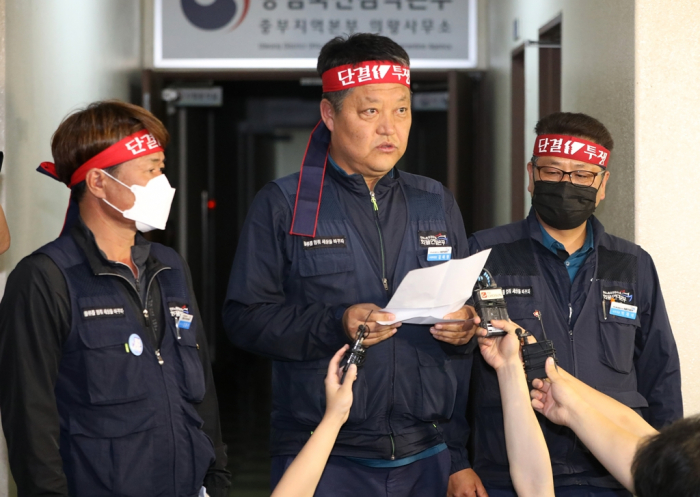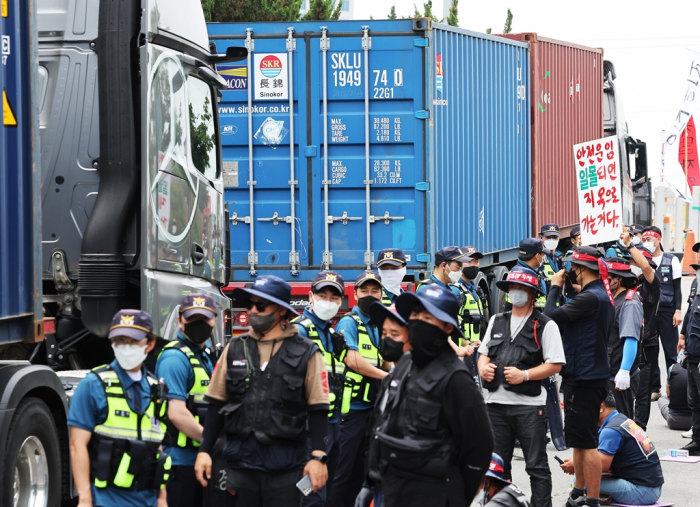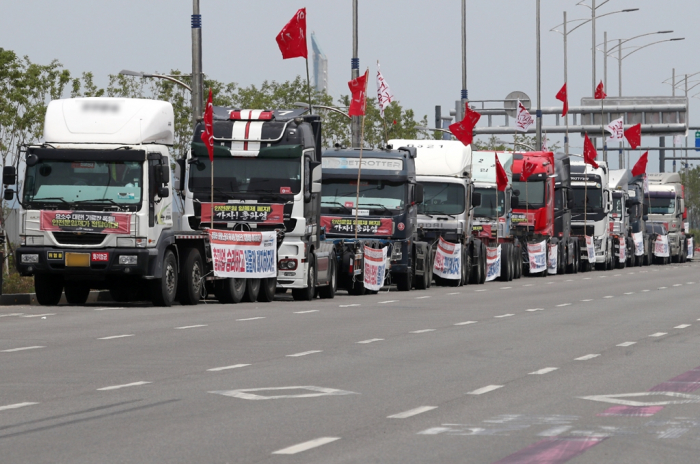Supply chain
Korean truck drivers end strike as govt agrees to extend wage guarantee
The agreement, however, could be a stop-gap measure as the pay guarantee system requires a law revision
By Jun 15, 2022 (Gmt+09:00)
1
Min read
Most Read
S.Korea's LS Materials set to boost earnings ahead of IPO process


Samsung shifts to emergency mode with 6-day work week for executives


NPS to commit $1.1 billion to external managers in 2024


HD Hyundai Marine IPO sees strong demand from retail investors


Navigating choppy waters: Dollar-won FX forecasting ┬Ā



South KoreaŌĆÖs unionized truck drivers have decided to end their eight-day strike after the government agreed to extend minimum wage guarantees, originally set to expire by year-end.
Representatives of the 22,000-strong Cargo Truckers Solidarity and transport ministry officials reached an agreement in late Tuesday, ending truckersŌĆÖ nationwide walkout that has crippled production and cargo traffic at major industrial hubs since June 7.
Union leaders said the government agreed to keep the truckers' three-year minimum wage system in place while continuing talks to expand the scope of guarantees for various types of cargo carriers.
Both sides didnŌĆÖt specify the extension period, but industry officials said the guarantee system will likely remain in place for another three years.

The ministry said it will report the results of its negotiations with the unionized truckers to the National Assembly as any change to the system requires a revision to related laws.
The union has been demanding an extension of the Safe Trucking Freight Rates System designed to prevent dangerous driving and guarantee minimum freight rates for truck drivers to cope with soaring fuel prices.
MAJOR INDUSTRIES HIT BY WEEKLONG STRIKE
The eight-day strike has delayed cargo shipments for industries from autos to steel, cement and petrochemicals in AsiaŌĆÖs fourth-largest economy, and cost the export-dependent country more than 1.6 trillion won ($1.2 billion) in lost production and unfulfilled deliveries, according to the trade and industry ministry.

Earlier this week, industry lobby groups said the trucker strike had cost Hyundai Motor Co., Kia Corp. and other automakers about 5,400 vehicles in lost production worth about 257 billion won.
POSCO and six other local steelmakers have posted a combined 1.15 trillion won in losses since the start of the strike last week.
Industry associations on Tuesday urged the government to change the system, saying that such subsidies have done little to reduce work hazards for truck drivers but instead increased transport costs by as much as 90%.
Write to Min-Ki Koo, Eun-Jung Kim and Yong-Hee Kwak at koo@hankyung.com
In-Soo Nam edited this article.
More to Read
-
 Supply chainChemical makers to halt plants as truck driver strike deepens
Supply chainChemical makers to halt plants as truck driver strike deepensJun 14, 2022 (Gmt+09:00)
3 Min read -
 Supply chainIndustrial losses balloon as Korean trucker strike enters 7th day
Supply chainIndustrial losses balloon as Korean trucker strike enters 7th dayJun 13, 2022 (Gmt+09:00)
3 Min read -
 EconomyKorea Inc. revises business plans as rising oil prices hit economy
EconomyKorea Inc. revises business plans as rising oil prices hit economyFeb 21, 2022 (Gmt+09:00)
6 Min read
Comment 0
LOG IN


